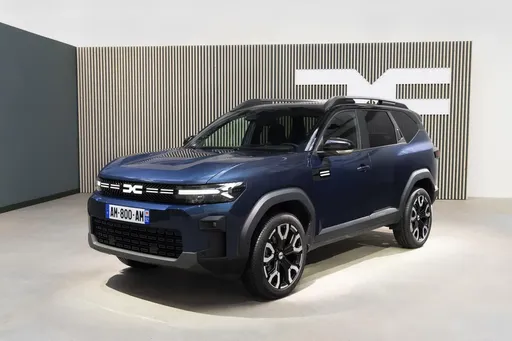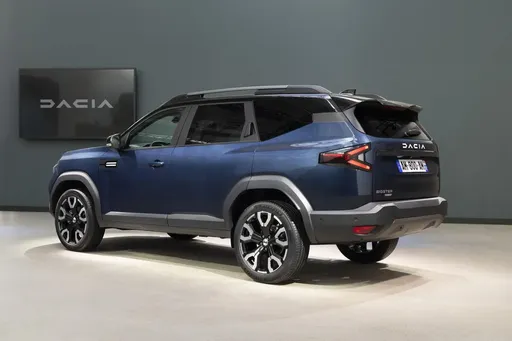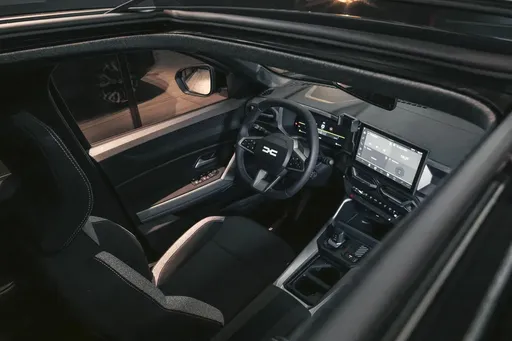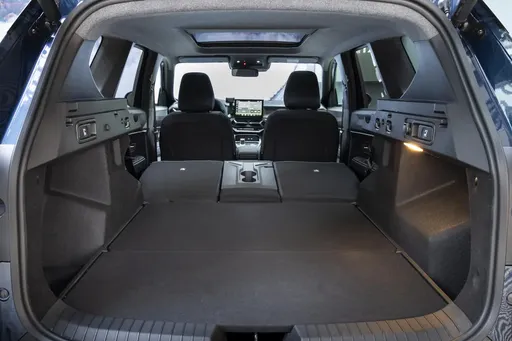Toyota C-HR vs Dacia Bigster – Which model is better for everyday use?
Compare performance, boot capacity, efficiency and price at a glance.
Find out which car is the better choice for you – Toyota C-HR or Dacia Bigster?
Costs and Efficiency:
When it comes to price and running costs, the biggest differences usually appear. This is often where you see which car fits your budget better in the long run.
Dacia Bigster has a significantly advantage in terms of price – it starts at 20600 £, while the Toyota C-HR costs 29100 £. That’s a price difference of around 8572 £.
Fuel consumption also shows a difference: Toyota C-HR manages with 0.80 L and is therefore clearly more efficient than the Dacia Bigster with 4.70 L. The difference is about 3.90 L per 100 km.
Engine and Performance:
Power, torque and acceleration say a lot about how a car feels on the road. This is where you see which model delivers more driving dynamics.
When it comes to engine power, the Toyota C-HR has a evident edge – offering 223 HP compared to 155 HP. That’s roughly 68 HP more horsepower.
In acceleration from 0 to 100 km/h, the Toyota C-HR is clearly perceptible quicker – completing the sprint in 7.40 s, while the Dacia Bigster takes 9.70 s. That’s about 2.30 s faster.
There’s no difference in top speed – both reach 180 km/h.
Space and Everyday Use:
Whether family car or daily driver – which one offers more room, flexibility and comfort?
Both vehicles offer seating for 5 people.
In curb weight, Dacia Bigster is hardly perceptible lighter – 1425 kg compared to 1505 kg. The difference is around 80 kg.
In terms of boot space, the Dacia Bigster offers clearly perceptible more room – 667 L compared to 447 L. That’s a difference of about 220 L.
In maximum load capacity, the Dacia Bigster performs significantly better – up to 1937 L, which is about 782 L more than the Toyota C-HR.
When it comes to payload, Dacia Bigster minimal takes the win – 467 kg compared to 425 kg. That’s a difference of about 42 kg.
Who wins the race?
The Toyota C-HR proves to be wins the duel decisively and therefore becomes our DriveDuel Champion!
Toyota C-HR is the better all-rounder in this comparison.
 @ Toyota Motor Corporation
@ Toyota Motor Corporation
Toyota C-HR
Toyota C-HR
The Toyota C-HR cuts a striking figure with its angular styling and coupe-like profile, so you’ll never go unnoticed in the supermarket car park. It balances everyday practicality with a nimble, city-friendly personality, making routine commutes feel a touch more fun without asking for forgiveness.
details @ Toyota Motor Corporation
@ Toyota Motor Corporation
 @ Toyota Motor Corporation
@ Toyota Motor Corporation
 @ Toyota Motor Corporation
@ Toyota Motor Corporation
 @ Toyota Motor Corporation
@ Toyota Motor Corporation
 @ Toyota Motor Corporation
@ Toyota Motor Corporation
Dacia Bigster
The Bigster is poised to redefine the SUV segment with its bold design and spacious interior, catering to the needs of both families and adventure seekers alike. Emphasizing sustainability and practicality, this model reflects a modern approach to automotive engineering, making it a compelling choice for environmentally conscious drivers. With its striking presence on the road, the Bigster not only captures attention but also embodies a new era of versatile mobility.
details @ Dacia / Renault Group Media
@ Dacia / Renault Group Media
 @ Dacia / Renault Group Media
@ Dacia / Renault Group Media
 @ Dacia / Renault Group Media
@ Dacia / Renault Group Media
 @ Dacia / Renault Group Media
@ Dacia / Renault Group Media
 @ Dacia / Renault Group Media
@ Dacia / Renault Group Media
 @ Toyota Motor Corporation
@ Toyota Motor Corporation
|
 @ Dacia / Renault Group Media
@ Dacia / Renault Group Media
|
|
|
|
Costs and Consumption |
|
|---|---|
|
Price
29100 - 42800 £
|
Price
20600 - 26600 £
|
|
Consumption L/100km
0.8 - 5.1 L
|
Consumption L/100km
4.7 - 7.1 L
|
|
Consumption kWh/100km
-
|
Consumption kWh/100km
-
|
|
Electric Range
68 km
|
Electric Range
-
|
|
Battery Capacity
-
|
Battery Capacity
-
|
|
co2
17 - 115 g/km
|
co2
106 - 137 g/km
|
|
Fuel tank capacity
43 L
|
Fuel tank capacity
50 - 55 L
|
Dimensions and Body |
|
|---|---|
|
Body Type
SUV
|
Body Type
SUV
|
|
Seats
5
|
Seats
5
|
|
Doors
5
|
Doors
5
|
|
Curb weight
1505 - 1755 kg
|
Curb weight
1425 - 1547 kg
|
|
Trunk capacity
350 - 447 L
|
Trunk capacity
510 - 667 L
|
|
Length
4362 mm
|
Length
4570 mm
|
|
Width
1832 mm
|
Width
1813 mm
|
|
Height
1558 - 1564 mm
|
Height
1705 mm
|
|
Max trunk capacity
1076 - 1155 L
|
Max trunk capacity
1813 - 1937 L
|
|
Payload
375 - 425 kg
|
Payload
383 - 467 kg
|
Engine and Performance |
|
|---|---|
|
Engine Type
Full Hybrid, Plugin Hybrid
|
Engine Type
Petrol MHEV, Full Hybrid, LPG
|
|
Transmission
Automatic
|
Transmission
Manuel, Automatic
|
|
Transmission Detail
CVT
|
Transmission Detail
Manual Gearbox, Automated Manual
|
|
Drive Type
Front-Wheel Drive, All-Wheel Drive
|
Drive Type
All-Wheel Drive, Front-Wheel Drive
|
|
Power HP
140 - 223 HP
|
Power HP
130 - 155 HP
|
|
Acceleration 0-100km/h
7.4 - 9.9 s
|
Acceleration 0-100km/h
9.7 - 11.2 s
|
|
Max Speed
175 - 180 km/h
|
Max Speed
180 km/h
|
|
Torque
-
|
Torque
230 Nm
|
|
Number of Cylinders
4
|
Number of Cylinders
3 - 4
|
|
Power kW
103 - 164 kW
|
Power kW
96 - 115 kW
|
|
Engine capacity
1798 - 1987 cm3
|
Engine capacity
1199 - 1799 cm3
|
General |
|
|---|---|
|
Model Year
2024 - 2025
|
Model Year
2025
|
|
CO2 Efficiency Class
C, B
|
CO2 Efficiency Class
E, D, C
|
|
Brand
Toyota
|
Brand
Dacia
|
What drivetrain options does the Toyota C-HR have?
Available configurations include Front-Wheel Drive or All-Wheel Drive.
The prices and data displayed are estimates based on German list prices and may vary by country. This information is not legally binding.
